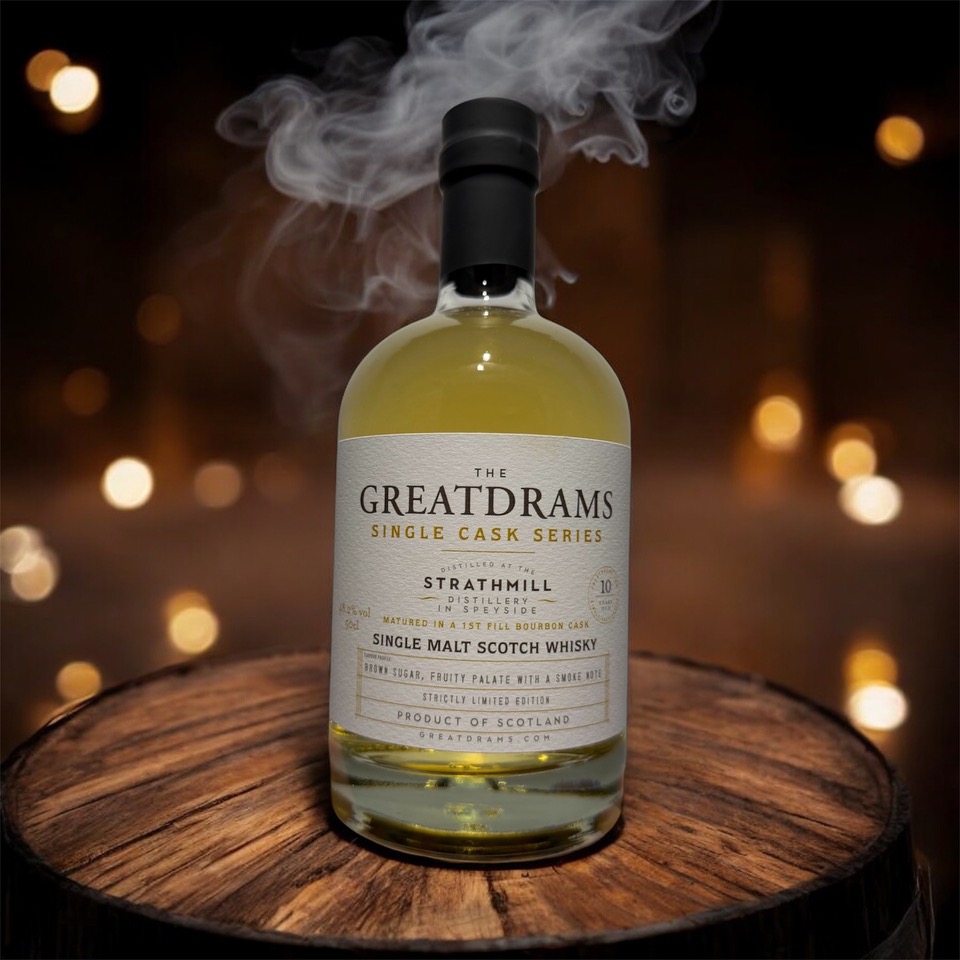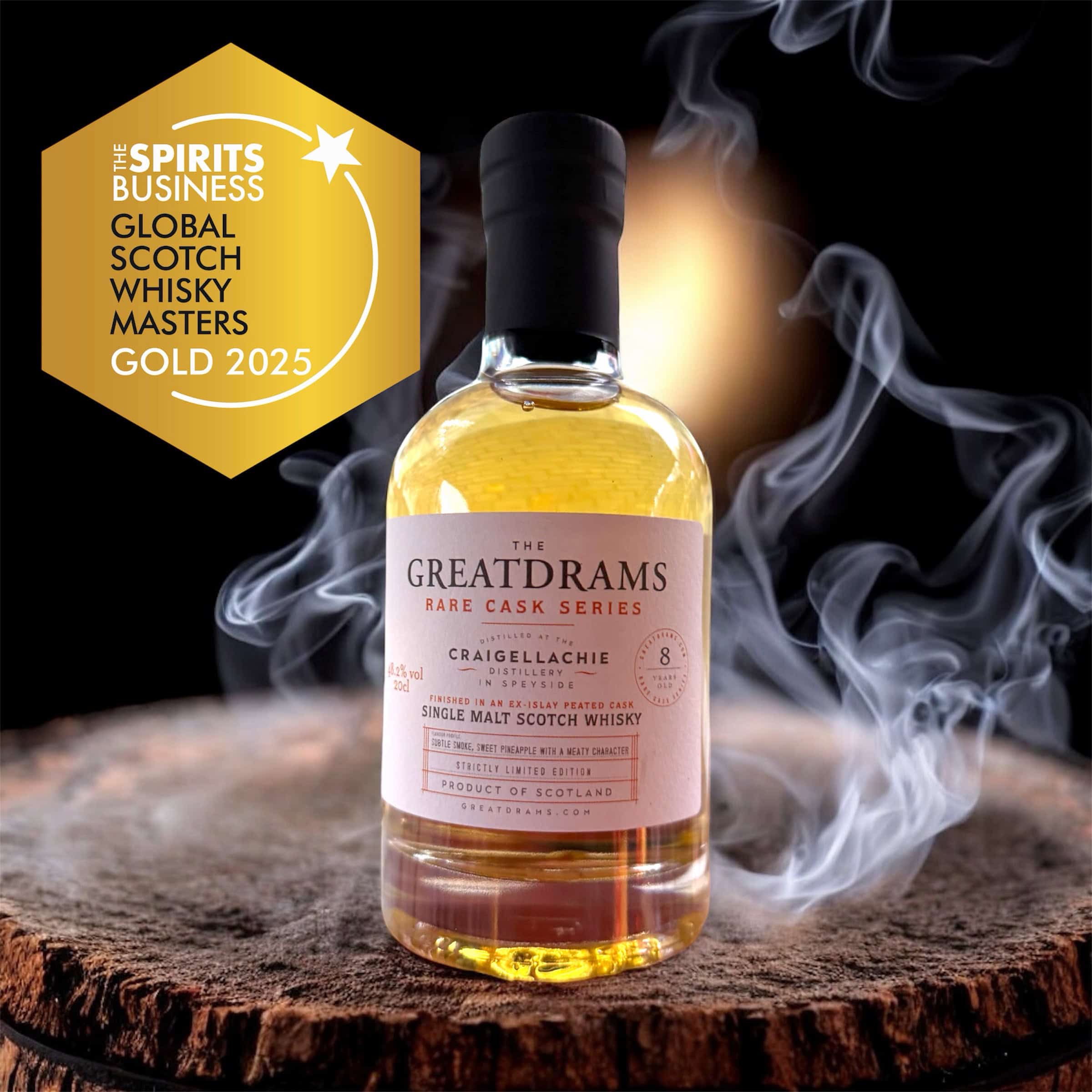Terroir: does it matter to whisky?
let’s begin
There’s a park near where I grew up that boasts a small hill.
In summer (or what passes as summer in the North West) you’ll notice that at the bottom of the hill, where there’s a small dip before the ground levels up, the grass grows longer and lusher than anywhere else. On the slopes of the hill there’s not much length at all; more often than not it dries and browns. Everywhere else it’s somewhere in between.
I used to look at that hill a fair bit in my urchin years. We’d roll eggs down it at Easter, and ourselves down it when the weather was passable. I used to wonder what caused the differences in the grass, assuming that it wasn’t merely the turbulence of revolving seven-year-olds. It wasn’t until I began my wine education a few years back that I learned that the answer was terroir.
I try not to get into arguments on twitter; it’s a useless medium for them, and they go absolutely nowhere. Come to that I try not to get into arguments generally, unless you happen to be my little sister. But last week I spotted a fledgling row brewing, and for some reason or other decided to wade in. The row concerned whether terroir could affect the way whisky tastes. My position – and believe me when I say that I’ve given this hours upon hours of thought – is that it can.
Terroir, for some context, is a French term. As I’ve previously attested, you can tell this because it works in italics. (To pull off italics you have to be French, Ancient Roman or Mark from Malt Review. No one else has the required je ne sais quoi.)
In basic terms it refers to ‘the total natural environment of any [agricultural] site.’ Or so claimeth the Oxford Companion to Wine. And the Oxford Companion to Wine should know, because wine basically owns the copyright to terroir. Terroir is what distinguishes a great wine from a good one. It’s the reason that grapes grown in the middle of a slope might make a wine selling for hundreds of pounds more than the product of the grapes from lower down that same slope…and justify that with quality. Don’t believe me? Go to Burgundy.
Terroir can manifest itself through soil, sun, available water or aspect of site. Anything, in fact, which affects the growing and ripening of the vine. And, in being turned into wine, each aspect of that terroir should be driving flavour – to the point that many French winemakers consider the variety of the grape to be distinctly secondary. You’re tasting Chambertin, for example, rather than Pinot Noir. Lafite, rather than a Cabernet/Merlot blend.
So the question remains: does this translate across to whisk(e)y? Well, let’s be traditional and open with the case for the prosecution.
I do have some sympathy with the viewpoint of the chap I was arguing against on twitter. From what I could glean, he is a fellow member of the wine trade. And I too get hugely frustrated when I see people discussing terroir without an understanding of what it really means, and without having sampled ‘the proof of the pudding’ in the form of a few well-chosen flights of properly terroir-driven vino.
He also has my complete agreement in that terroir is demonstrably more important to wine than it is, or could ever be, to whisk(e)y. We can argue back and forth about the exact degree to which a whisk(e)y’s flavour is driven by oak, but the bottom line is that the cask has a more than considerable impact. Which speaks rather louder than the barley one might have used in the creation of the spirit. Not to mention peat and stills.
Wine, by contrast, should be the purest possible expression of the fruit picked from the vineyard. Yes, some wine is also aged in casks, but seldom for more than a couple of years unless you’re making a fortified wine; generally for considerably less. When Australian Chardonnays became excessively oak-driven in the ‘80s they fell out of fashion. Currently the massive, over-oaked, high alcohol reds are giving way to lighter, fresher wines, more expressive of their fruit. Because the fruit is always key. And through the fruit, we taste the terroir.
So, from that point of view, whisk(e)y shouldn’t be able to express terroir to the same extent – or certainly on the same terms as wine. What’s more, most distilleries currently operating are predominantly fussed about yield of spirit when it comes to selecting their barley. They buy their malt in bulk from big companies, and provenance, as far as they’re concerned, can go hang. It’s all about the bottom line. And if you don’t know where your barley comes from then terroir goes to hell.
Which means that the counsel for the prosecution is perfectly correct in saying that the vast majority of whisk(e)y doesn’t reflect terroir. But let’s give the defence a chance now, because ‘doesn’t’ is rather different to ‘can’t’, and I rather think that a degree of close-mindedness has slightly blinkered terroir’s detractors.
If something grows in the ground, it has terroir. Whether it be grapes, barley or grass in a park. And if you grow the same thing in two different places then they will taste different, according to conditions. Similar in many respects, I grant you, but never identical. And these differences will translate into wash and in spirit. At present there are only a handful of places in the world where different barleys run out of the same stills. Bruichladdich is one. Springbank is another. Kilchoman is a third. But the fourth, and most significant, is Waterford.
Waterford is the brainchild of Mark Reynier, who was responsible for the rebirth of Bruichladdich and their subsequent belief in terroir. At Waterford he has taken his belief – his certainty – further. Barley from forty-six farms around Ireland is stored in Waterford’s ‘Cathedral’, and separately mashed, fermented and distilled into new make. And each one tastes different. Not just to those with trained palates, but to anyone given two samples to distinguish between. It’s all barley. The difference is terroir.
All of this is corroborated by Pat Hayes; a barley researcher at Oregon State University. Through years of study he has grown and analysed over 10,000 varieties of barley (I know – I couldn’t believe there were that many either), and has conclusively proven that not only does variety influence flavour, but that the same variety tastes markedly different when planted in different sites.
‘Fine’ say detractors. ‘There are different flavours in the barley. But whisk(e)y shouldn’t taste like barley; cask and oxidation deal with all that. So who cares? What’s more, the spirit is governed by fermentation times and by still shape and cut points. I’m not tasting barley, I’m tasting Highland Park or Ardbeg or Glenkinchie.’
To that, I would suggest the detractors consider bourbon. The bourbon nerd – and I’m one – obsesses about mashbills. We talk about the percentage of rye or wheat involved, and what it brings to flavour. When we taste a bourbon blind we look for the spicy kick that might indicate a rye, or the more delicate flavours that point towards wheat. And let’s not forget the sweeter, almost ‘fat’ notes of corn whisk(e)y. The point is that we’re looking for the flavours brought by the cereal. Sure, there’ll be differences depending on the stills and the ferment. But let’s not for a moment think that the cereal doesn’t matter. That it doesn’t contribute flavour. That it’s just a canvas for washback, still and cask. If that were true then what would it matter whether we drank single malt or blended scotch? Come to that, what would it matter whether we drank whisk(e)y or brandy? Or even rum, perish the thought.
The flavour of whisk(e)y will never be as dominated by terroir as that of wine. It can’t be. Too many other factors are at play. But to say that it doesn’t matter – that it doesn’t make any difference at all – is absurd. Like saying that the quality of beef doesn’t make a difference to the flavour of a Bolognese. Everything is the product of what goes into it – however significant the impact of each component might be.
The proof of the pudding is in the tasting, of course. And Bruichladdich Islay Barley tastes different to Bruichladdich Scottish Barley. It remains to be seen how different each Waterford plot will taste; since the plan ultimately is to vat them, Grand Vin style, you’ll probably have to visit to find out.
The problem with this question is that most distilleries aren’t interested in answering it. That bottom line again. But here’s where exciting start-ups, like ‘Single Estate’ Ballindalloch in Speyside, or Belgrove in Tasmania, with their home-grown rye, can step up. They can tinker; they can play around. They can experiment with different plots and give us the chance to taste the difference for ourselves.
Of course the distilleries who don’t care about terroir still make brilliant whisky. And I agree that casks, stills and fermentation remain the most significant contributors to flavour. But, like Bruichladdich, I have been persuaded that terroir can make a difference. That it can, and should matter. And, like Mark Reynier, I believe that research and understanding will ultimately lead to a more profound result.
I rest my case. Over to the jury.
Cheers!















6 thoughts on “Terroir: does it matter to whisky?”
Terroir matters.
When I was down under & had the opportunity to sample some wonderful Australian malts – mostly made with locally sourced ingredients – you can taste the difference.
The most pronounced was peat.
Peat from Tasmania results in a softer smoke than traditional Scotch.
I can’t wait to try out Mark Reynier’s malts.
Thanks for reading – glad you agree! There’s certainly some exploration worth doing, and a lot of Australian distilleries look primed for doing it! The research where whisky’s concerned is still in its infancy, but it’s definitely not something to be dismissed.
Morning Greg,
Oh what is to become of me? Wake up early and the first thing I do is read the recently published articles on whiskey. If I was a businessman, I may have read the opening stocks on foreign financial markets while sipping on my insipid black, filter coffee.
Your article on terroir was an enjoyable read but is it relevant to the production of whiskey seeing that fermentation, still and cask play an important role?
I feel that there are certain aspects on the argument of terroir that have been omitted, ones revelant to production of wine but irrevalent to whiskey to a certain degree.
Minerality: like you opening comparison of the hill and the grass being lusher at the bottom than the slopes, the base will generally be more fertile as the minerals will wash off and collect and the bottom. Cerals, will take their substancey from the mineral availability of the soil. However these minerals will become depleted, only replenished through crop rotation and fertilisation.
Residence: Vines unlike cereals are almost permenant to their location, perhaps grubbed up only every 25 years, they are static, unlike crops that are annual.
They draw not only for the soil but well below into the bedrock seeking available moisture and further minerality. The length of the rootstock of the vines are therefore greater.
Viticulture: As the grape bunches develop on the vines, there will be strict pruning and selection with much rejection. From perhaps ten bunches to four, the objective here is to have as much concentration of minerality into those four bunches rather than all ten,
Will Mark Reiner and others prior to harvest walk through the fields of barley and physically remove great swaths so those remaining reap the benefit of the soil? I think not. The farmer, the distiller has already pre calculated the potential volume of alcohol that will come per tonne of grain. They can not afford to do this.
Is Terroir the new buzzword, maybe, useful if it gives your whiskey a USP.
I think terroir for now is taken out of context, it dose have its place, I just feel that it’s a different terroir to the term of terroir associated with wine.
Regards,
Niall Tubridy
Irish Whiskey Museum,
Dublin 2, Ireland.
Hi Niall
Thanks very much for reading.
You’re certainly right about whisky’s terroir being very different to that of wine – I tried to make that clear in the article. In fact in a piece I wrote a year ago (link at the bottom of this comment) I suggested that perhaps a new word was necessary…if only to avoid some of the vitriol thrown around when this subject rears its head!
I’m in the wine trade myself, with most of the WSET diploma behind me, and I fully appreciate your arguments with regards to pruning/yields. Worth considering though that that level of rigorous selection is still, by and large, confined to the winemakers at the top of the hierarchy; broadly speaking those dealing with smaller quantities. As I pointed out in the article, most distilleries currently don’t really care about the terroir question one way or another. But those that do are, for the most part, smaller-scale. Having spoken to a fair few people at distilleries in Australia, America and England, there are certainly distillers whose barley specifications go beyond simply ‘how much alcohol will I get per tonne.’
My personal opinion – and I’m sure many on either side will disagree – is that terroir isn’t as fundamental to whisky as it is to wine. It has the potential to be a part – possibly a very small part – of the totality of a whisky’s flavour, rather than the single governing factor it is for wines in places like Burgundy and Alsace.
I just think that to say it can’t play any part whatsoever, or that the flavours (however great or small) it has the potential to contribute are inconsequential, is a slightly restrictive way of looking at it.
That said, probably one of those subjects on which there’ll never be a general consensus! Which is probably healthy!
Cheers
Adam W.
Adam,
As ever, this is a great read. I continue to admire your writing. Always informative with deft touches of humor. I also love that I get exposed to British words I don’t know. This one brought me “fussed”.
I am way less knowledgeable about this topic than you and many others, but here is my amateur, experiential evidence. I am in love with Bruichladdich Islay Barley 2007 from Rockside farm. The 2009 Islay Barley is delicious, but does not taste like 2007. None of that tastes like the Scottish Barley releases, as you pointed out, but some of that difference can be the casks. I had an opportunity to meet Adam Hannnett from Bruichladdich and I asked him what other differences there were between 2007 and 2009 Islay Barley and he said none – it was all the barley. I found that amazing. I have had this discussion with my friends. Some point out that weather and growing conditions and other things besides barley can be in play. Maybe, but ultimately, I do think that those are a part of the Terroir. So based on my experience, I would have to agree with you. I am so happy you wrote this article because now I can refer people here in this discussion! Thank-you! This is brilliant!
Catherine
Thanks Catherine! By the sounds of it you should have written the article – the side-by-side vintage comparison on the Islay barley sounds fascinating. And delicious!
Cheers!
Adam